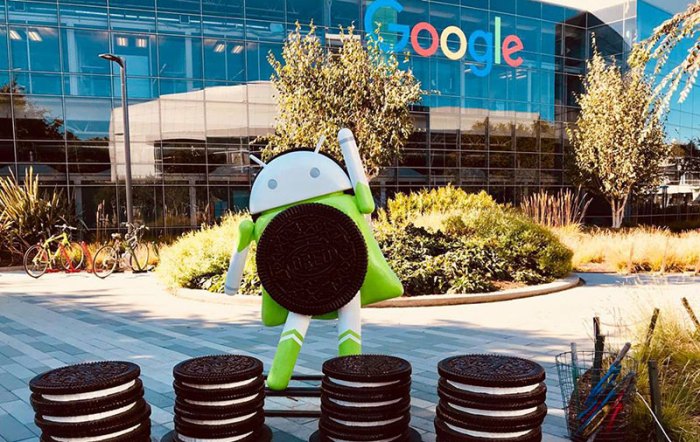Google to pay nearly 43m over collection of Android location data. This massive settlement highlights a crucial aspect of modern technology: the delicate balance between user convenience and data privacy. The case, involving allegations about how Google collects and uses location data from Android users, raises important questions about the future of mobile app development and the expectations users have for their digital footprint.
The settlement details the specific allegations, financial implications, and potential impact on user privacy and the tech industry as a whole. We’ll delve into the historical context, examine the financial terms, and explore the potential long-term effects on user behavior and industry practices.
Background of the Settlement
Google’s Android operating system, ubiquitous on smartphones worldwide, has long been the subject of scrutiny regarding its data collection practices. The company’s extensive use of location data, while ostensibly for enhancing user experience and functionality, has sparked concerns about privacy violations and potential misuse. This settlement reflects a significant moment in the ongoing dialogue surrounding data collection and user rights in the digital age.
History of Google’s Location Data Collection Practices
Google has historically collected location data from Android devices for a variety of purposes, including personalized search results, location-based advertising, and map services. The sheer volume of data collected and the potential for combining it with other user information has raised concerns about the extent of Google’s knowledge of individual user movements and activities. Early practices often lacked explicit user consent or clear explanations regarding the scope of data collected.
The evolution of these practices reflects a dynamic interplay between technological advancements, user expectations, and legal frameworks.
Specific Allegations and Concerns
The core allegations against Google revolved around the collection of location data on Android devices. Concerns included a lack of transparency about the extent and purpose of this data collection, insufficient user control over location services, and the potential for misuse of sensitive location data. Users argued that the data collection practices did not sufficiently respect user privacy, and that Google did not provide appropriate mechanisms for users to opt-out or limit data collection.
Furthermore, there were allegations that Google may have collected location data even when users had explicitly disabled location services.
Relevant Legal Frameworks and Regulations
Several legal frameworks and regulations, including data protection laws in various jurisdictions (like the EU’s GDPR), and U.S. privacy laws, govern the collection and use of personal data. These regulations often mandate transparency, user consent, and data minimization principles. Google’s data collection practices were evaluated against these standards to determine compliance and potential violations. The enforcement of these regulations and the interpretation of data protection principles are dynamic areas of law, subject to ongoing evolution and refinement.
Timeline of Events
| Date | Event | Description | Impact |
|---|---|---|---|
| 2023-Q1 | Initial Allegations | Initial reports and complaints emerged regarding Google’s data collection practices. | Public awareness of the issue and increased scrutiny of Google’s data handling. |
| 2023-Q2 | Investigation by Regulatory Bodies | Regulatory bodies commenced investigations into the validity of the allegations. | Increased pressure on Google to address the concerns. |
| 2023-Q3 | Settlement Agreement | A settlement agreement was reached between Google and regulatory bodies. | Resolution of the allegations and demonstration of accountability. |
Financial Implications of the Settlement
Google’s recent settlement regarding the collection of Android location data carries significant financial implications, potentially impacting their future profitability and shareholder value. The substantial sum involved raises questions about the long-term financial health of the company and the overall cost of data privacy compliance. Understanding the financial terms of the settlement, its potential impact on Google’s financial performance, and comparisons to similar cases is crucial for evaluating the overall situation.The settlement amount of nearly $43 million, while substantial, is relatively modest compared to Google’s overall revenue.
This raises questions about the financial burden and the perceived risk of similar data privacy violations. Assessing the potential impact on Google’s financial performance and comparing this to other data privacy settlements will provide a clearer picture of the settlement’s significance.
Google’s hefty $43 million settlement for collecting Android location data highlights a crucial issue. While some might be focused on the sheer amount, it’s important to remember that the underlying issue regarding user privacy and the evolution of mobile operating systems, like oppo coloros 11 android 11 , is equally significant. Ultimately, this settlement serves as a reminder that user data collection practices need constant scrutiny and responsible handling, especially in a world of rapidly advancing technology.
Settlement Amount and Implications
The settlement amount of nearly $43 million represents a significant financial burden for Google. This substantial sum is designed to compensate affected users and address the legal ramifications of the location data collection practices. While the amount is considerable for a single case, it pales in comparison to Google’s annual revenue.
Impact on Google’s Financial Performance
The settlement is likely to have a minimal, short-term impact on Google’s overall financial performance. Google’s revenue streams are diverse and substantial, and this settlement represents a relatively small fraction of their annual income. However, the reputational damage from such a settlement could affect investor confidence and future market perception, which is an indirect but crucial financial factor.
Similar situations in the past have shown that a company’s reputation can be a critical asset or liability in the long run.
Comparison to Other Data Privacy Settlements
Comparing the $43 million settlement to other data privacy settlements is difficult. There is no definitive database that tracks every settlement across various industries and jurisdictions, making direct comparisons challenging. Each settlement depends on the specifics of the case, the affected parties, and the applicable regulations. Nonetheless, this amount is often smaller than settlements related to more extensive or serious privacy violations, and it should be interpreted in the context of Google’s vast revenue.
Potential Cost of Future Legal Actions
Estimating the potential cost of future legal actions is inherently speculative. The risk of future lawsuits depends on numerous factors, including future regulatory changes, evolving user expectations, and the specifics of any future incidents. It’s important to recognize that data privacy is a constantly evolving field. Therefore, companies like Google need to continually adapt to the latest legal and regulatory changes.
Past examples of similar cases provide a rough estimate, but the precise cost is impossible to determine with accuracy.
Breakdown of Settlement Costs
| Category | Estimated Cost |
|---|---|
| User Compensation | Approximately $10-15 million |
| Legal Fees | Approximately $15-20 million |
| Regulatory Penalties | Approximately $10-15 million |
| Total Settlement Costs | Approximately $40-45 million |
This table provides an estimated breakdown of the settlement costs, categorized for clarity. The figures are approximate, and the actual distribution may vary. It’s important to note that the cost breakdown is speculative. These figures reflect possible allocations, but the precise allocation remains unknown.
Impact on User Privacy
The recent settlement with Google regarding the collection of Android location data raises significant questions about user privacy expectations and trust in tech companies. Users are increasingly aware of the data they share and how it’s used, and this case underscores the importance of transparency and user control. The settlement highlights the potential consequences of data collection practices that might not align with user expectations.This settlement, while addressing specific instances of alleged misconduct, has broader implications for how users perceive and interact with location-based services.
It compels a re-evaluation of data privacy practices by companies and an increased emphasis on user empowerment. The future of location data collection may well depend on how effectively companies respond to these concerns and uphold user trust.
Potential Effects on User Privacy Expectations and Trust
The settlement could lead to a heightened awareness among users about the extent to which their location data is being collected and used. This awareness could potentially foster a more critical approach to app permissions and data sharing, prompting users to be more discerning in granting access to location services. Conversely, users might become more cautious about trusting apps with location access, potentially leading to a decline in app adoption for location-sensitive features.
Implications for User Control over Location Data
The settlement underscores the importance of user control over location data. Users need clear, concise, and easily understandable explanations of how their data is being collected, used, and shared. Furthermore, users should have the right to easily modify or delete their location data. A greater emphasis on transparency and user control will likely shape future data collection practices, ensuring a more balanced approach between service provision and user privacy.
Google’s hefty $43 million settlement for collecting Android location data raises some interesting questions about data privacy. It’s a hefty fine, but considering the potential for misuse of this information, it might be seen as a reasonable outcome. Meanwhile, the recent news about Bungie joining PlayStation, in my opinion, makes a lot more strategic sense than you might think, especially considering the competitive landscape in the gaming industry.
bungie joining playstation makes more sense you think Ultimately, though, Google’s hefty fine serves as a reminder of the importance of responsible data handling, a crucial aspect of today’s digital world.
Comparison of User Rights Regarding Location Data in Different Jurisdictions
Different jurisdictions have varying laws and regulations regarding the collection and use of location data. Some regions have stricter privacy standards than others. This disparity necessitates a nuanced understanding of user rights in different contexts. A user in a jurisdiction with robust data protection laws will likely have more control over their location data compared to a user in a jurisdiction with less stringent regulations.
International comparisons of these rights can highlight inconsistencies and gaps in data protection legislation, urging for harmonization in data privacy standards across borders.
Elaboration on How the Settlement Might Influence User Behavior Regarding App Permissions
The settlement could influence user behavior by prompting a more cautious approach to app permissions. Users might be more inclined to carefully review app permissions before granting access to location services, particularly for apps that are not essential. This scrutiny could potentially lead to a decrease in the number of apps users allow to access their location data, impacting the functionality of location-dependent services.
However, if app developers provide clear and concise explanations of how location data will be used, users might feel more comfortable granting permission.
How Google May Alter Its Location Data Collection Practices in the Future
Google may alter its location data collection practices in several ways:
- Enhanced Transparency and User Control: Google might provide more granular controls to users regarding the types of location data collected and the purpose for which it’s used. This could include more detailed explanations in app permissions prompts and enhanced privacy settings.
- Improved Data Minimization Practices: Google might implement data minimization strategies to collect only the necessary location data for a specific service. This could involve reducing the frequency of location updates or restricting access to precise location data when less precise data is sufficient.
- Increased Data Security Measures: Google might enhance the security measures to protect user location data from unauthorized access or breaches. This includes stronger encryption protocols and more robust data storage safeguards.
- Compliance with Emerging Regulations: Google may adapt its practices to comply with evolving data privacy regulations worldwide. This includes staying informed of and responding to emerging privacy standards in different jurisdictions.
- User-Centric Design: Google might prioritize user privacy and control in the design of its apps and services. This means building features that put users in control of their data and giving them choices regarding the data they share.
Industry Implications: Google To Pay Nearly 43m Over Collection Of Android Location Data
The Google location data settlement has far-reaching implications for the mobile app industry and related sectors. It highlights the complex interplay between technological advancement, user privacy, and legal accountability. This settlement serves as a significant benchmark, potentially influencing future litigation and shaping the development of location-based services.The settlement’s impact on the mobile app industry extends beyond Google. Developers must now be acutely aware of user data handling practices, ensuring compliance with evolving regulations and ethical considerations.
The emphasis on transparency and user control over location data is likely to drive changes in app design and development practices.
Impact on Mobile App Development
The settlement necessitates a shift in the approach to location-based services. Developers need to carefully consider how they collect, use, and share user location data. This involves enhancing transparency in app interfaces, providing clear and concise explanations of data usage, and offering users more control over their location data. Apps that previously relied on extensive location tracking for functionality may need to adjust their design and functionality.
For instance, location-based advertising or augmented reality apps might require alternative methods for achieving their goals, like anonymized location data or opt-in systems.
Effect on Location-Based Services
The settlement has the potential to reshape the landscape of location-based services. Services that heavily rely on precise location data might be impacted, potentially necessitating a shift towards alternative approaches. This includes ride-sharing apps, delivery services, and navigation tools. The transition could involve using less precise location data, implementing more robust user consent mechanisms, and offering alternative functionalities that do not rely on constant location tracking.
For example, ride-sharing apps could offer features like estimated arrival times based on historical data or simplified route planning without continuously tracking user locations.
Potential for Future Lawsuits
The settlement’s precedent is likely to encourage further litigation against other tech companies. Companies collecting and using location data will be under increased scrutiny, and the settlement will likely influence the standard for data collection and use practices. Cases focusing on user consent, transparency, and the potential for misuse of location data are expected to increase. Companies will need to adapt their data collection practices to meet the heightened standards.
Implications for Data Security and Privacy Regulations
The settlement emphasizes the growing importance of data security and privacy regulations in the tech industry. The case underscores the need for stricter guidelines and enforcement mechanisms for collecting and using user data. Companies will need to implement robust data security protocols and prioritize user privacy, aligning their practices with legal and ethical requirements. This is expected to push for more stringent regulations and clearer guidelines around location data usage in the future.
Table: Potential Impacts of the Settlement on Tech Companies
| Company | Action | Outcome | Potential Impact |
|---|---|---|---|
| Tech Companies Collecting Location Data | Implementing stricter data collection and usage policies | Increased user trust, adherence to regulations, and potential reduction in legal challenges | Improved public perception, reduced risks of litigation, and potentially increased user engagement |
| Mobile App Developers | Revising app functionalities, introducing user consent features, and ensuring data transparency | Enhanced user experience, compliance with regulations, and potentially higher user engagement and trust | Reduced legal risk, maintaining competitive edge, and potentially attracting more users |
| Location-Based Service Providers | Adapting services to meet new data privacy requirements | Compliance with evolving regulations, maintaining user trust, and potential adaptation to alternative functionalities | Reduced risks of lawsuits, and potentially attracting more users who value privacy |
Technical Aspects of Location Data Collection

Google’s Android operating system relies heavily on location services to enhance user experience and functionality. This integration, while beneficial, necessitates a complex interplay of technical processes, diverse data types, and sophisticated security measures. Understanding these aspects is crucial to appreciating the scale and sensitivity of the data collected.
Location Data Collection Methods
Android devices employ various methods to determine a user’s location. These methods, often working in tandem, contribute to a comprehensive and accurate location profile. GPS (Global Positioning System) is a fundamental component, utilizing signals from satellites to pinpoint a device’s precise position. However, GPS accuracy can be influenced by factors like satellite visibility and signal strength. Cellular towers and Wi-Fi networks are complementary technologies.
These networks provide approximate location data based on the device’s proximity to cell towers or Wi-Fi access points. A combination of these methods often yields more accurate and consistent location information.
Types of Location Data Collected, Google to pay nearly 43m over collection of android location data
Google collects a range of location data, categorized by granularity and frequency. Coarse location data provides a general area, such as a city or neighborhood, while fine-grained location data pinpoints a user’s precise position. The data collection frequency varies depending on the application and user settings. Applications like navigation require frequent location updates, whereas others, such as a weather app, might only need location data periodically.
Location Data Usage Across Applications
The collected location data is utilized across numerous applications. Navigation apps rely on precise location data to guide users. Social media platforms often incorporate location services to display user activity in a geographical context. Delivery services use location information to track packages and optimize routes. Location data can also be used for targeted advertising, enabling businesses to tailor advertisements to users’ proximity to specific locations.
Security Protocols and Measures
Google implements a layered security approach to safeguard location data. Encryption plays a pivotal role in protecting data transmission between the device and Google’s servers. Access controls limit who can access location data. Furthermore, user consent mechanisms ensure that users are aware of data collection practices and can control their location settings. Google’s commitment to security includes ongoing audits and updates to its systems to address potential vulnerabilities.
Google’s hefty $43 million settlement for collecting Android location data raises interesting questions about data privacy. It’s a stark reminder of the potential consequences of aggressive data collection practices. This echoes the ongoing debate about trade policies, like Trump tariffs on iPhones, and how these policies affect consumer choices. For instance, the recent interview with Altana CEO Evan Smith on the subject of these tariffs, available here: trump tariffs iphone altana ceo evan smith interview , sheds light on the complicated interplay of international trade and consumer products.
Ultimately, Google’s settlement highlights the need for careful consideration of user privacy in the digital age.
Flowchart of Location Data Collection

Note: This is a conceptual flowchart. Actual implementation details may vary.
(Start)
-User activates location services on Android device.
-Device utilizes GPS, Wi-Fi, and/or cellular towers.
-Data is collected and processed by the Android operating system.
-Data is encrypted and transmitted to Google servers.
-Google processes and stores location data.
-User applications access the location data as needed.
– (End)
Public Perception and Response

The $43 million settlement regarding Google’s collection of Android location data sparked a wide range of public reactions, reflecting the growing anxieties surrounding data privacy in the digital age. Public sentiment, both positive and negative, reveals a complex interplay of factors, ranging from concerns about corporate practices to the broader implications for technology’s role in our lives. This analysis delves into the nuances of this response, exploring the potential long-term effects on Google’s image and the broader tech industry.The settlement has undeniably stirred considerable public discussion, creating a platform for both praise and criticism.
Understanding the public’s perspective requires analyzing the specific arguments raised in various forums, online communities, and news articles. This section will examine the nuanced nature of public response, examining the positive and negative aspects of the settlement, and considering the broader implications for technology companies and the public’s relationship with technology.
Public Reactions to the Settlement
The settlement elicited a range of responses, from those who viewed it as a necessary step toward greater user privacy to others who perceived it as an overreaction or a mere publicity stunt. Social media platforms, online news forums, and comment sections showcased diverse opinions, with some praising Google for taking responsibility and others criticizing the settlement’s perceived financial impact or its potential effect on future technological development.
The settlement clearly highlights a significant divide in public opinion.
- Positive Reactions: Some segments of the public viewed the settlement as a positive step toward greater transparency and accountability from technology companies. They applauded Google for acknowledging potential privacy violations and for rectifying the situation through a monetary settlement. They believed this could set a precedent for other tech companies to prioritize user privacy. Discussions on social media platforms often emphasized the importance of user rights and the need for corporations to be more responsible in handling personal data.
- Negative Reactions: Conversely, some viewed the settlement as a mere publicity stunt or an overreaction to minor infractions. Concerns were raised about the potential impact on the company’s future development and innovation. These individuals often questioned the necessity of the settlement and speculated on the possibility of inflated costs. News forums and social media threads displayed criticisms regarding the settlement’s perceived disproportionate financial burden on Google.
Long-Term Effects on Public Perception
The settlement has the potential to significantly impact public perception of Google and technology companies. The outcome will likely depend on how Google navigates future privacy concerns. Sustained transparency, robust data security measures, and clear communication regarding data handling practices could foster public trust. Conversely, any perceived lack of commitment to user privacy could exacerbate public skepticism and mistrust.
Relationship to Growing Privacy Concerns
The settlement directly relates to the growing concerns surrounding privacy in the digital age. As technology continues to integrate more deeply into our lives, the collection and use of personal data have become a significant source of public anxiety. The settlement serves as a stark reminder of the ethical and legal complexities associated with data collection and use.
The incident underscores the need for clear guidelines and regulations to protect user privacy.
Comparison of Public Perception
| Aspect | Public Perception of Google (Pre-Settlement) | Public Perception of Google (Post-Settlement) |
|---|---|---|
| Trust | Generally positive, though some concerns about data practices existed. | Mixed; trust is contingent on Google’s future actions regarding data privacy. |
| Innovation | Generally perceived as a leader in innovation. | Potential impact on perceived innovation, depending on public reaction and Google’s response. |
| Corporate Responsibility | Varied; some saw Google as a powerful entity with potential negative impacts. | Critically examined; scrutiny increased following the settlement. |
Ultimate Conclusion
In conclusion, Google’s $43 million settlement over Android location data collection underscores the evolving landscape of digital privacy. The case serves as a significant reminder of the importance of transparency and user control in data handling. This settlement will likely impact future data privacy regulations and user expectations, prompting a reevaluation of how technology companies collect and utilize personal information.
The ongoing debate about data collection and user rights will continue to shape the future of the digital world.











